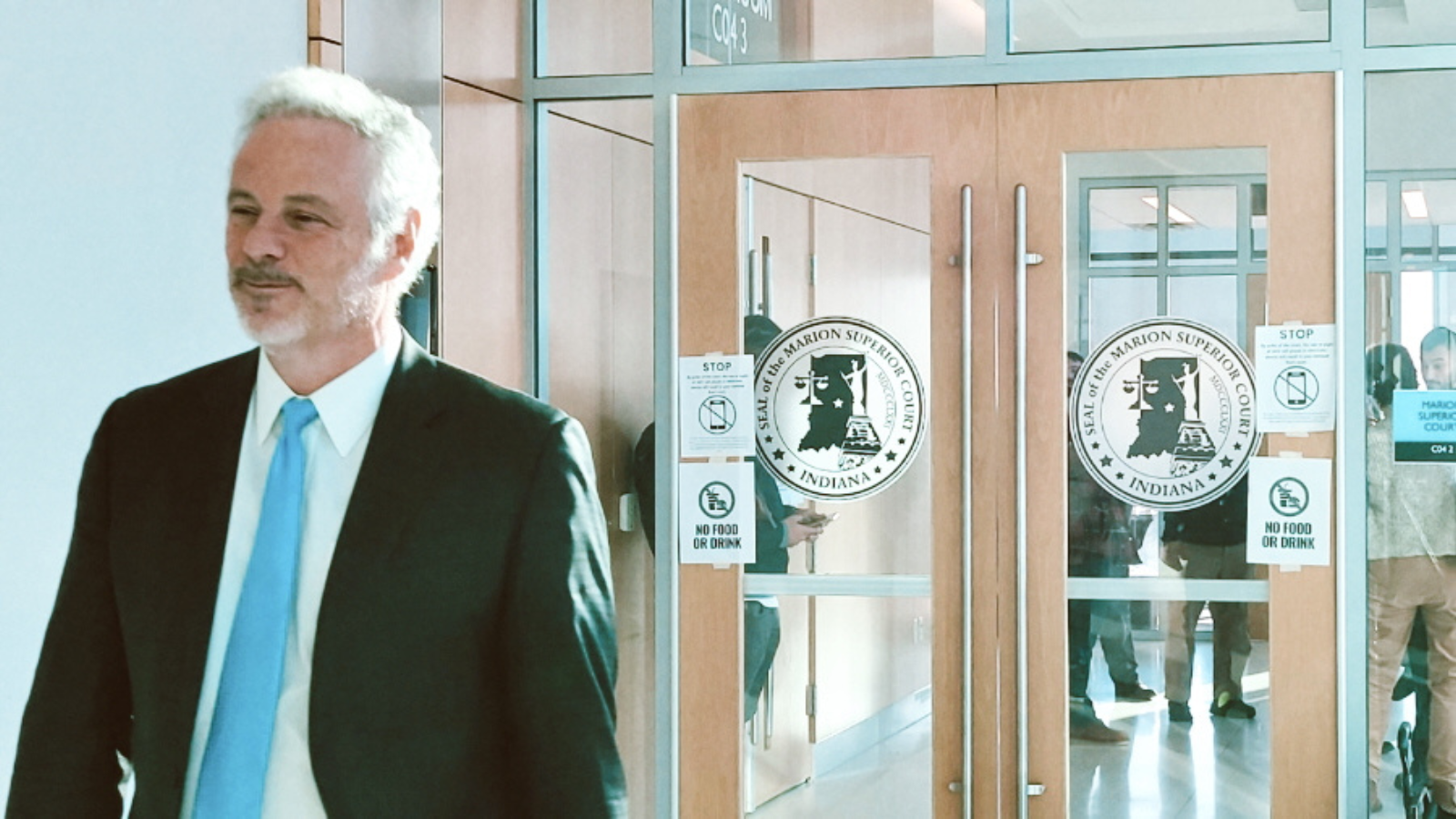Day four of the trial of IMPD officers Adam Ahmad and Steven Sanchez saw the defense doubling down on their narrative, bringing a series of medical experts to the stand. Their aim was to argue that Herman Whitfield III’s death was not caused by the IMPD’s use of tasers, prone restraint, or delayed and uninvited “medical” response. Instead, the defense blamed traces of THC in his system and pre-existing health conditions. One witness, Dr. Bill Smock, starkly referred to Whitfield as a “ticking time bomb” destined to die at “any moment.”
Smock, a police surgeon for the Louisville Police Department, took the stand to challenge the coroner’s findings. The coroner’s autopsy report, published shortly after Whitfield’s death, concluded that “as his death occurred during a physical prone restraint, and this restraint played a role in his death, the manner of death is listed as homicide.” Smock dismissed this expert opinion, aligning instead with the defense’s narrative that external factors, not police actions, were responsible for Whitfield’s death.
Smock referenced case studies of THC-related cardiac arrests involving individuals with other substances in their systems despite these cases differing significantly from Whitfield’s circumstances. He and the defense argued that THC, coupled with Whitfield’s physical health and undiagnosed early heart disease, accelerated his death. The defense further attempted to deflect responsibility, suggesting that Whitfield’s mental state stemmed from his parents and reiterating claims that he did not die from positional asphyxiation but from his struggle with the officers. At one point, the defense astonishingly questioned police accountability, with their attorney asking, “With the thousands of folks cuffed and left in prone positions on the floor in routine arrests, we’re supposed to check every one constantly to see if they’re alive and responsive?”
The defense’s allegations make it apparent that they believe Whitfield is the guilty one responsible for his own death instead of the cop’s brutal assault and negligence. Whitfield’s parents called 911, clearly requesting an ambulance to their home on April 25, 2022; instead, the cops appeared, escalated the situation, and then caused his death.
The edited IMPD video reveals the chilling reality of the incident: officers tased Herman Whitfield III multiple times and restrained him face-down on the floor. Despite Whitfield repeatedly pleading, “I can’t breathe,” the officers continued their actions, ultimately leading to his death during a mental health crisis. The prosecution highlighted a stark contrast, referencing a hospitalization two years earlier when Whitfield, also experiencing THC-related distress, was taken directly to the hospital and survived, walking out days later. Dr. Smock, in what sounded like a line from the racist 1936 film Reefer Madness, dismissed police culpability, stating, “There’s nothing that the officers could do. It’s unfortunate that he died, but the officers didn’t force him to take that marijuana. He took it himself.”
The prosecution’s medical witness, Dr. Alon Steinberg, a California-based cardiologist with extensive experience in a state where marijuana is legalized for recreational use, testified that he has never encountered a case of death caused by THC. Dr. Steinberg’s expert testimony supported the coroner’s findings, emphasizing that Whitfield’s death was the result of being held in a prone restraint while his nervous system was under extreme distress. He explained to the jury how being held on the chest restricts oxygen intake and hinders the excretion of CO2 from the lungs. Steinberg cited data showing that 60 to 70% of deaths from prone restraint occur within a minute of being held in this position. He stressed that individuals in such situations should be placed on their side to prevent airflow restriction. Furthermore, Steinberg pointed out that Whitfield should have received immediate CPR, especially since the officers witnessed him losing consciousness while EMS was already on-site.
As the trial nears its conclusion, the defense’s strategy becomes increasingly clear: to divert the jury’s attention from compelling evidence of homicide to an unfounded narrative blaming marijuana use for early death. The jury now faces a critical decision—whether to accept the defense’s thinly veiled attempt to excuse the officers’ actions or to heed the testimony of independent experts affirming that Whitfield was needlessly and tragically killed by those supposedly sworn to protect him.
Featured photo: Dr. Alon Steinberg exited the Marion County Superior Court room. Credit: Indianapolis Liberation Center.

